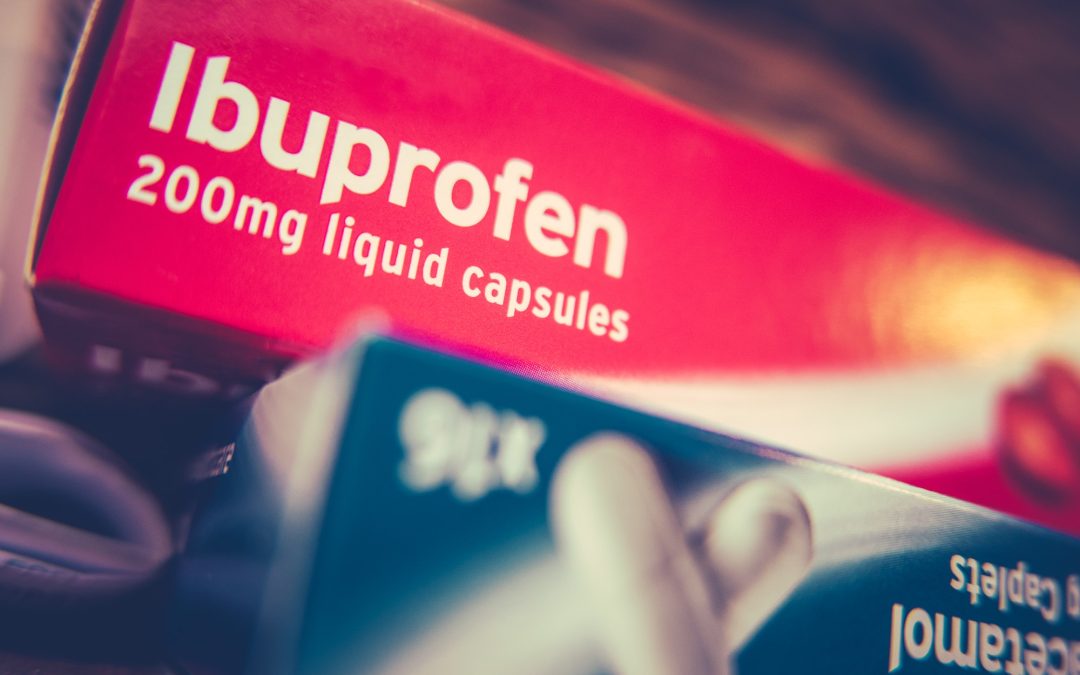When it comes to mixing ibuprofen with blood pressure meds, don’t do it! Find out how combining these may injure your kidneys.
According to a new study, taking common blood pressure medications along with ibuprofen may result in permanent kidney damage. Diuretics and renin-angiotensin system (RAS) inhibitors are commonly prescribed together for hypertension treatments. However, through a computer-simulated drug trial, researchers found that taking these medications along with ibuprofen may increase sudden kidney damage or failure by 31%.
“It’s not that everyone who happens to take this combination of drugs is going to have problems,” says Anita Layton, co-author of the study and professor of applied mathematics at the University of Waterloo in Ontario. “But the research shows it’s enough of a problem that you should exercise caution.”
 RAS inhibitors focus on the hormone system that regulates blood pressure, fluid balance, and electrolyte balance. On the other hand, ibuprofen (sold under brand names like Advil and Motrin) typically treats pain, fever, and inflammation.
RAS inhibitors focus on the hormone system that regulates blood pressure, fluid balance, and electrolyte balance. On the other hand, ibuprofen (sold under brand names like Advil and Motrin) typically treats pain, fever, and inflammation.
“Diuretics are a family of drugs that make the body hold less water,” explains Layton. “Being dehydrated is a major factor in acute kidney injury, and then the RAS inhibitor and ibuprofen hit the kidney with this triple whammy. If you happen to be on these hypertension drugs and need a painkiller, consider acetaminophen instead.”
The study appears in the journal Mathematical Biosciences.
Improving Blood Pressure Naturally
While medications are necessary for some individuals, you can also improve your blood pressure through lifestyle changes. In fact, by practicing healthy habits, you may even reduce the amount of medication you need (with your healthcare provider’s approval). When it comes to improving your blood pressure naturally, consider these healthy practices.
Exercise Regularly
By working out on a regular basis, you’ll be strengthening your heart and making it more efficient at pumping blood. In fact, just doing 150 minutes of moderate-intensity exercise per week can help lower your blood pressure. In other words, by walking for 30 minutes per day, 5 days a week, you’ll be boosting your heart health.
Lose Weight
If you’re overweight, losing as little as 5% of your body mass may significantly lower your blood pressure levels. Some studies show that losing about 17 pounds may lower systolic blood pressure by 8.5 mm Hg and diastolic blood pressure by 6.5 mm Hg. Moreover, the health benefits are greater when paired with exercise.
Take Supplements
 There are several studies examining the effects of natural supplements and their ability to lower blood pressure. For example, aged garlic extract has been used as a stand-alone treatment for lowering blood pressure. Another supplement that may boost your circulation is L-arginine Plus.
There are several studies examining the effects of natural supplements and their ability to lower blood pressure. For example, aged garlic extract has been used as a stand-alone treatment for lowering blood pressure. Another supplement that may boost your circulation is L-arginine Plus.
It contains a combination of l-arginine, l-citrulline, and various vitamins and minerals that promote blood pressure health. If you’re ready to support your heart, then take L-arginine Plus and talk to your doctor about the risks of mixing ibuprofen with your blood pressure medications.

